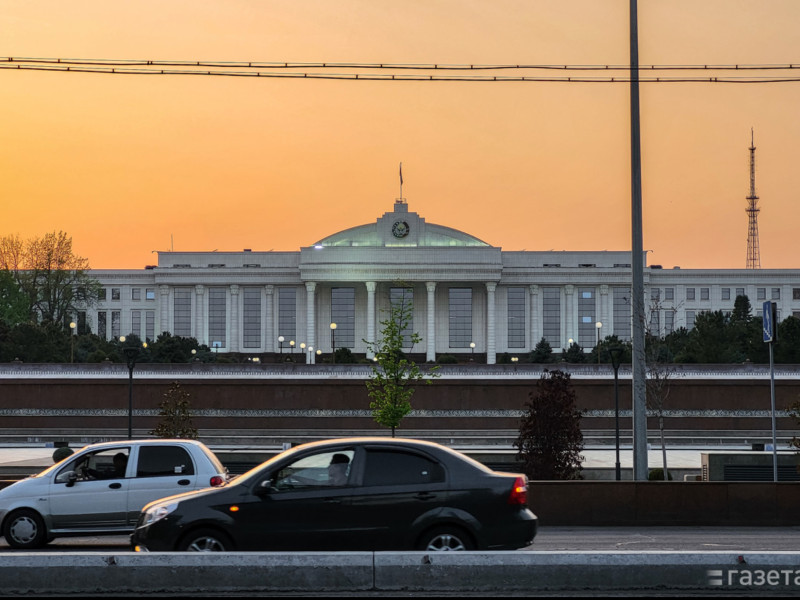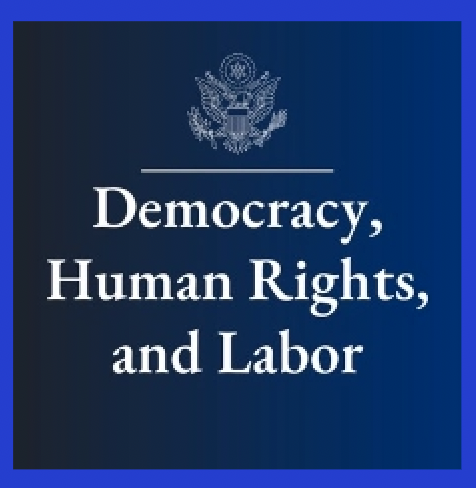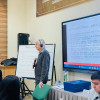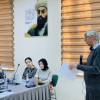
On 5 June, President of Uzbekistan Shavkat Mirziyoyev signed the Law on Conflict of Interest. The document was approved by the Senate more than a year ago, on 1 June 2023, and the Legislative Chamber adopted it on 25 October 2022. The law focuses on mechanisms for preventing and regulating conflicts of interest related to the activities of government agencies and employees of government organizations. The document applies to government agencies and government institutions, state unitary enterprises, state funds, and JSCs with a state share in the authorized capital (authorized capital) of 50% or more. With respect to legal entities with a state share of 50% or more, the law applies only to public procurement. The document defines the concepts of "conflict of interest", "related persons", "personal interest", and "close relatives". A conflict of interest is defined as a situation in which a person’s personal interest (direct or indirect) influences or may influence the proper performance of their official or service duties and in which a contradiction arises (an actual conflict of interest) or may arise (a potential conflict of interest) between personal interest and the rights and legitimate interests of citizens, organizations, society or the state. Close relatives in the context of the law are parents, brothers, sisters, sons, daughters, and spouses, as well as parents, brothers, sisters, and children of spouses. Related persons of an employee of a government agency or other organization are his/her close relatives, a legal entity whose shares or stakes in the authorized capital (authorized capital) are owned by the employee and/or his/her close relatives or where they are the heads or members of the governing body. An employee is obliged to: avoid personal interest that leads or may lead to a conflict of interest in the performance of official duties or official powers; in the event of a real conflict of interest, notify his immediate supervisor or a special unit before making a decision on documents in his office; not force employees directly subordinate to him or other employees to act (or refrain from acting) directly or indirectly pursuing their personal interests; notify within one working day of the receipt of job offers from an organization or its structural unit under the control of a government agency or other organization where he himself works, etc. Associated persons, when entering into relations with a government agency or other organization in which the employee works, should not: allow a conflict of interest in their personal interests, as well as to complete a declaration of a potential conflict of interest in electronic or written form and not to knowingly include false or inaccurate information in it. In order to prevent a conflict of interest, an employee does not have the right to: receive personal benefit through abuse of office; conceal information or provide knowingly false or inaccurate information when disclosing information about a conflict of interest; work part-time in organizations, one of which is subordinate to or controlled by the other, except for cases stipulated by law; be a founder (shareholder, participant) of commercial organizations, except for cases of owning up to 10% of freely traded shares of a JSC; own shares or stakes in the authorized capital (authorized capital) of a business controlled by a government agency or other organization where he works, as well as be a member of the management body, except for cases stipulated in laws and decisions of the president (the version of the law approved by the Senate did not include these phrases) or when this is his job responsibilities in accordance with the law. Upon employment, the employee must sell these shares or stakes within one month, resign from membership in the management bodies, participate as a representative in consideration of cases concerning him or persons associated with him, in government agencies or other organizations where he himself works, if in accordance with the law he is not a legal representative; participate in the purchase or lease of property of the organization where he works (this clause also included a ban on the participation of persons associated with the employee in these auctions, but it was not included in the signed law). The law defines the tasks of authorized bodies in the area of preventing conflicts of interest in the activities of government agencies: the Anti-Corruption Agency (a specially authorized government agency), ethics commissions, human resources departments, and internal anti-corruption structures in government organizations. Government organizations must take the following measures in the area of conflict of interest regulation: organize a system for informing employees about a real conflict of interest; post a form for declaring a potential conflict of interest and a notice of a real conflict of interest on official websites; change or cancel decisions made with the assumption of a conflict of interest; change or cancel transactions made with the assumption of a conflict of interest, or, in accordance with the established procedure, file lawsuits in court to invalidate such transactions; organize activities to regulate relations related to conflicts of interest, ethics commissions, and special units; determine an internal procedure for preventing conflicts of interest in government agencies or other organizations and take other measures. Disclosure of information about a conflict of interest by employees of government organizations is established by declaring information about a possible conflict of interest and notifying about a real conflict of interest. Declarations and notices of conflicts of interest will be analyzed by special units of government organizations, submitted for consideration to ethics commissions, and transferred to the Anti-Corruption Agency. The Anti-Corruption Agency is tasked with drawing up administrative protocols for violations of the legislation to prevent conflicts of interest. If the courts recognize decisions and agreements concluded with the assumption of a conflict of interest as invalid, then the profits received from such agreements will be transferred to the state. The corresponding amendments are being made to the Civil Code. Responsibility for violation of the law. In connection with the adoption of the law on the prevention of conflicts of interest, amendments to the legislation were approved, which determine the legal consequences of violating the requirements for conflicts of interest. Failure of employees of state bodies and organizations to notify in the manner prescribed by law about the existence of a real conflict of interest will be punishable by a fine of 3 to 5 basic calculation units, and repeated failure to notify - from 5 to 10 basic calculation units. Failure of an official to take measures to resolve a conflict of interest in cases that have become known to him entails the imposition of a fine of 5 to 10 times the basic amount, and repeated failure - from 10 to 15 basic calculation units. If violations are recorded in the area of public procurement, the fine will be from 20 to 30 basic calculation units. According to the law of the Senate, a law approved by the upper house of parliament is sent to the president within 10 days for signing and publication. The president must sign the law and publish it within 60 days. The document was under consideration by the Presidential Administration for over a year. The legislation does not specify whether it is possible to make changes to a law already adopted by parliament. The President has the right to return the law with his objections to the Oliy Majlis for re-discussion and voting. Gazeta.uz, having compared the versions of the law approved by the Senate and signed by the President, noticed some changes. In particular, according to Article 15, an employee is obliged to fill out and submit a notification of a real conflict of interest to his immediate supervisor or a special unit within a working day from the moment he became aware of a real conflict of interest in cases where close relatives with direct subordination are hired or persons associated with him are involved in his work. The final version has been amended with the exception of cases of hiring for a position included in the political group of positions of the state civil service, as well as if “persons associated with him are involved in his work on the basis of a civil law contract”. Positions of the state civil service consist of political, managerial, and auxiliary groups of positions. At the same time, the categories of positions belonging to these groups are determined in the State Register of Positions of the State Civil Service. This register is approved by the president and is maintained by a specially authorized body. The Anti-Corruption Agency told Gazeta.uz that the register has not yet been approved. The director of the Anti-Corruption Agency, Akmal Burkhanov, stated that his structure identifies thousands of cases of conflicts of interest in the civil service, but due to the lack of a legal basis, it is problematic to eliminate such situations. The law will come into force in six months - from 6 December 2024.
Source: Gazeta.uz (https://www.gazeta.uz/ru/2024/06/05/conflict-of-interest/)










